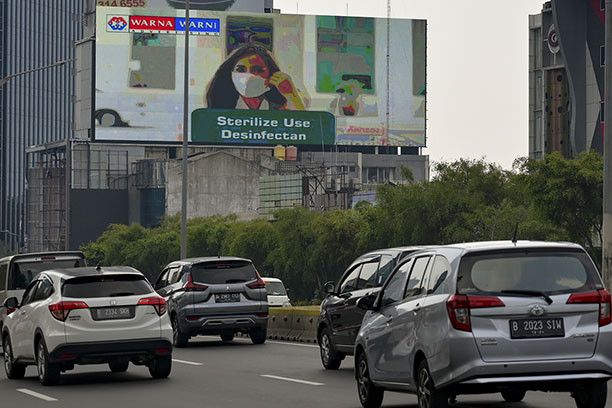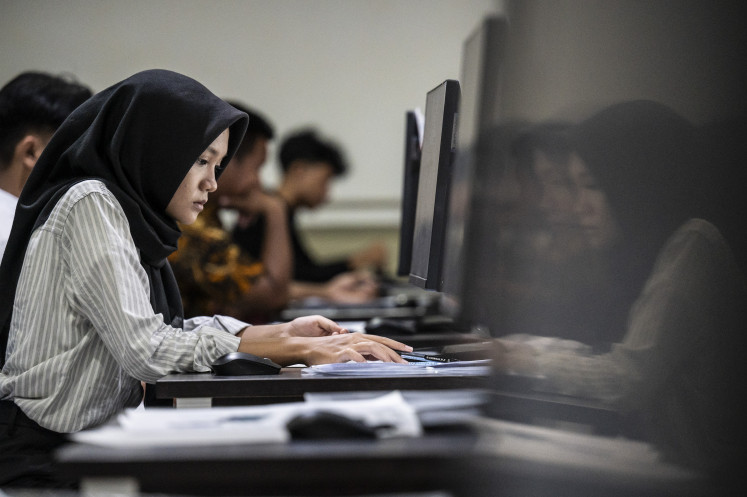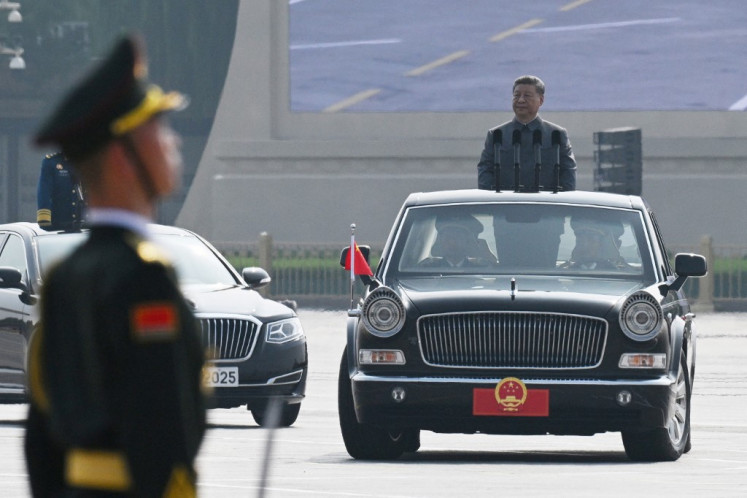Popular Reads
Top Results
Can't find what you're looking for?
View all search resultsPopular Reads
Top Results
Can't find what you're looking for?
View all search resultsWhere is the brake?
Reopening the economy will not help the country recover if the transmission spirals out of control. Before allowing the reopening, Anies threatened to hit the emergency brake if infections continued to increase. With the second transitional PSBB ending July 30, perhaps it’s time for him to remember his words.
Change text size
Gift Premium Articles
to Anyone
J
akarta Governor Anies Baswedan had a valid explanation for the city’s consistently high daily COVID-19 case tallies after large-scale restrictions (PSBB) came to an end on June 4 and social and economic activities gradually resumed under the so-called transitional PSBB period. He said the surge had occurred because of increased tracing and testing, but that is only half the story. The reopening of the economy that has prompted people to leave their confinement is the other half.
On Monday, Jakarta recorded 472 new confirmed cases, bringing the total number to 19,473, which accounts for 19 percent of the national figure. From the beginning of the outbreak, Jakarta has remained an epicenter of virus transmission, with Surabaya following suit recently.
Read also: Indonesia's latest official COVID-19 figures
Jakarta has seen the drastic rise in confirmed cases as it is transitioning to the “new normal”, when the economy will fully reopen under strict health protocols. During the transitional period, which Anies has extended once, people have started to return to their workplaces, visit shopping malls, gather in restaurants or coffee shops and leave the city en masse for weekend excursions.
Many have found reasons to resume their pre-COVID-19 routines, thinking that everything has returned to normal. The Jakarta health agency’s recent findings of new clusters of virus transmission in a number of office buildings across the city, therefore, come as no surprise.
The public radio broadcaster RRI on Jl. Merdeka Barat has been closed since July 22 and will only reopen on Aug. 4 after three of its employees tested positive for COVID-19. Jakarta Health Agency head Widyastuti said a number of institutions, including ministries, state-owned enterprises, city agencies and private corporations had reported cases in their respective offices.
While Widyastuti declined to go into details, a spokesman for the national COVID-19 task force, Wiku Adisasmito, said the virus had infected 375 people who worked in 59 offices, including a number of ministries located in Central and South Jakarta, as of July 25. Reports have it the number of clusters has increased to 68 with 440 confirmed cases the next day.
Deputy Governor Ahmad Riza Patria said the health protocols may not have been strictly enforced in those government and private offices. Violations of health protocols are punishable by fines, but the fact the city’s public order agency has collected Rp 1.1 billion in fines from offenders, both individuals and institutions, during the transitional PSBB period, should confirm Riza’s suspicion of low compliance with the protocols.
Read also: Crowds at HI traffic circle OK if health protocols followed: Anies
The upward trend in infections in Jakarta is alarming because the COVID-19 restrictions have been eased to get the economy moving but without proper oversight. Worse, a survey by Indikator Politik discovered recently, 65 percent of respondents do not want mobility restrictions reinstated, although 84.7 percent say they are “very concerned” about the outbreak.
Reopening the economy will not help the country recover if the transmission spirals out of control. Before allowing the reopening, Anies threatened to hit the emergency brake if infections continued to increase. With the second transitional PSBB ending July 30, perhaps it’s time for him to remember his words.










